September 3, 2025 | 07:15 GMT +7
September 3, 2025 | 07:15 GMT +7
Hotline: 0913.378.918
September 3, 2025 | 07:15 GMT +7
Hotline: 0913.378.918
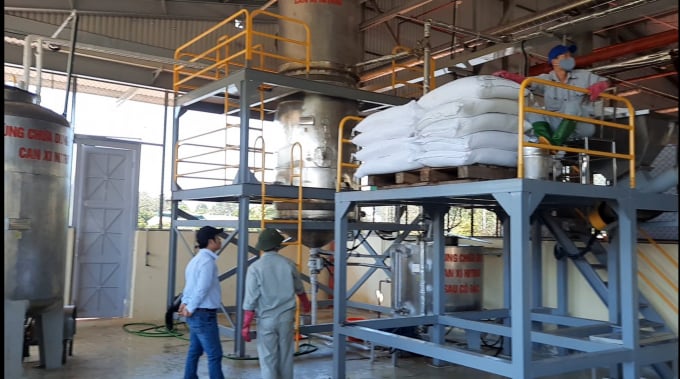
A pilot line for CAN fertilizer of the Mining Chemical Industry Holding Corporation Limited. Photo: Micco.
In our agriculture, a variety of nitrogenous fertilizers are used such as urea which has the highest nitrogen content (44 – 48%) of all solid nitrogenous fertilizers, ammonium sulfate containing about 20% nitrogen, ammonium chloride (24%), ammonium nitrate (33-35%), calcium nitrate (15 – 15.5% nitrogen and 25% calcium), and calcium ammonium nitrate.
CAN is a mixture of calcium nitrate and ammonium nitrate, consisting of a macronutrient (N) and a mesonutrient (Ca).
A majority of CAN fertilizers contains roughly 26 – 27% nitrogen (equally in two sources: NH4+ and NO3-, 12 – 13.5%), and 11 – 12% calcium (in CaO).
Calcium nitrate can improve and restore soil by reducing sulfate, desalinating, restoring soil structure so that the soil becomes well aerated and well drained. Calcium nitrate fertilizer is soluble in water, which helps supplement plants with calcium and nitrate nitrogen quickly, especially in case of calcium deficiency.
Calcium nitrate increases fruit set, minimizes flower and fruit abortion, and strengthens rice stem. This fertilizer is very suitable for perennial crops such as coffee, rambutan, etc.
Ammonium nitrate is a root-applied fertilizer. It is commonly used as it provides half of N in the nitrate form and half in the ammonium form, both of which are beneficial for the plant, especially for strong rice stem.
Nitrogen plays a pivotal role in the cell formation, and root as well as foliage growth, and accelerates the photosynthesis. Nitrate is mobile in soil water, thus easily access to plant roots, ready for the plant’s nutrient uptake. The ammonium is taken in by the roots or gradually converted to nitrate by soil microorganisms.
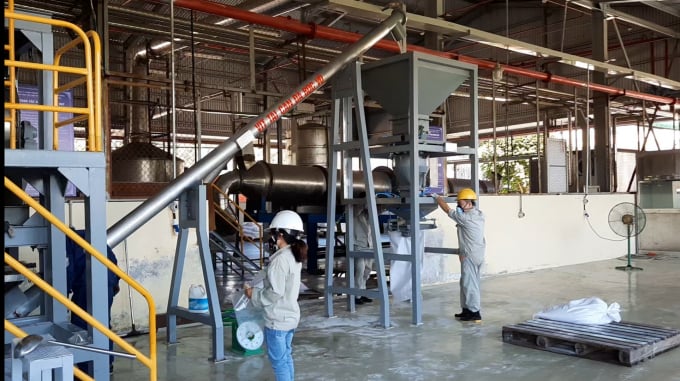
The production of CAN fertilizer by MICCO marked a significant milestone for the fertilizer industry of Vietnam. Photo: Micco.
According to the International Fertilizer Association, the total global CAN fertilizer volume in 2000 was around 4 million tons and 5 million tons in 2020, accounting for about 4.5 – 5% of the total amount of fertilizer consumed worldwide.
Until now, Vietnam has to import all CAN fertilizer, as no company in the country is able to manufacture the product. The CAN fertilizer used in Vietnam is imported by commercial companies. Behn Meyer AgriCare is the world's leading CAN manufacturer.
The Mining Chemical Industry Holding Corporation Limited (MICCO), a member of the Vietnam Coal and Mineral Group, is an enterprise whose strength is in industrial explosives production. Since its establishment, MICCO has provided over 1.8 million tons of industrial explosives for the nation’s coal industry, mining, and most of the country's key hydroelectric projects.
Besides, MICCO has undertaken research in an effort to diversify their products, including a lot of chemicals and fertilizers such as ammonium nitrate, calcium nitrate, sodium nitrate, etc.
Among the achievements of MICCO, one must be mentioned is the success of the project Ammonium Nitrate Manufacturing Plant implemented in Thai Binh, with a capacity of 200,000 tons per annum. The Plant’s product serves not only the domestic market but also international market, and for industrial explosives and fertilizer production.
From R&D results achieved in the laboratory concerning CAN fertilizer production, the project team led by Mr. Nguyen Thanh Liem studied to design a pilot line for CAN fertilizer with a capacity of 1 ton per hour, adopting continuous technology, highly automated control system, and technology parameters controlled and monitored by the PLC software. Nearly 7 tons of fertilizer have been produced with required quality standards, and comparable to the same type imported.
Currently, MICCO is taking next steps including testing and applying for CAN manufacturing license. In the near future, with the experience gained through implementing R&D results, proactively researching, and applying science to production, together with the active support of agencies and departments, MICCO will be able to mass produce CAN, providing farmers with an additional quality fertilizer.
Translated by Megan Phan
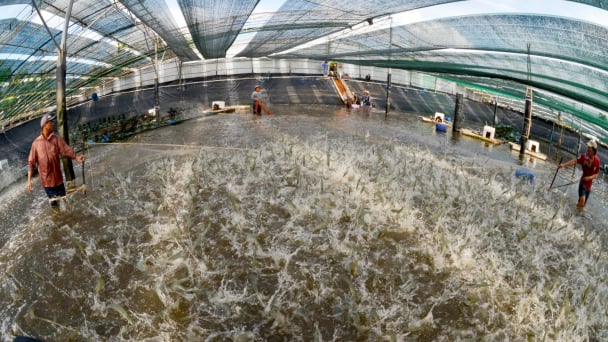
(VAN) ‘Greening’ is an irreversible trend, enabling Vietnam’s seafood sector to integrate more deeply, enhance value, reduce emissions, and better meet global requirements.
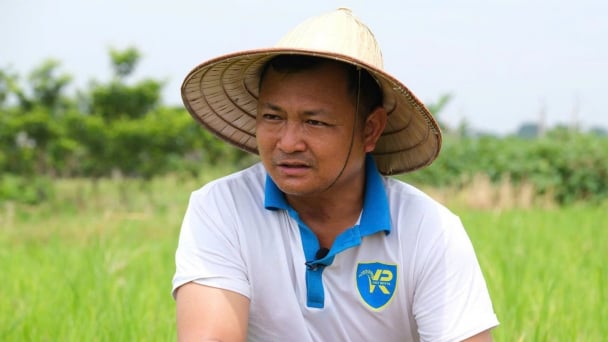
(VAN) Carrying lessons from Viet Nam’s past, Nguyen Khac Hoang cultivates Cuban soil, working side by side with local farmers to ensure food security in an eco-friendly way.
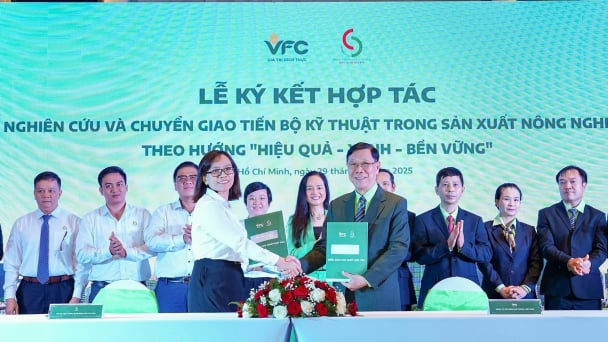
(VAN) Vietnam Fumigation Joint Stock Company (VFC) has cooperated with 3 scientific research organizations for a comprehensive agricultural ecosystem.
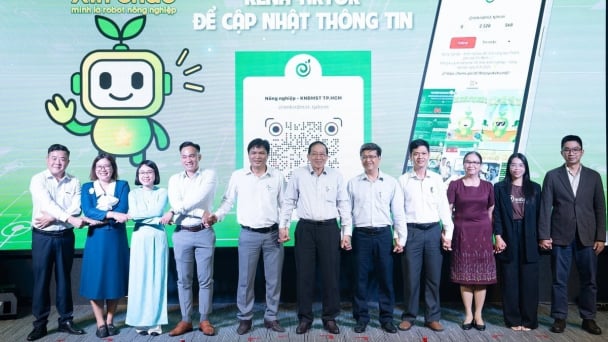
(VAN) Ho Chi Minh City aims to elevate agriculture through innovation, focusing on processing, trade promotion, and moving toward sustainable exports.
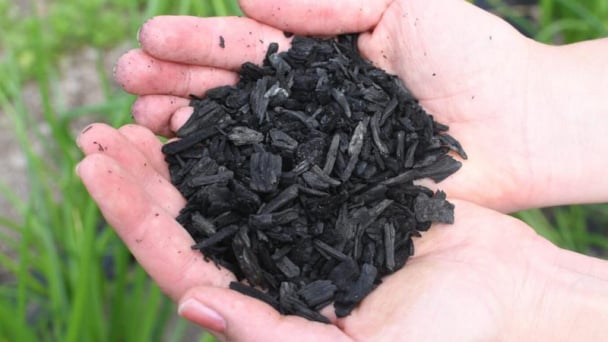
(VAN) This is the opinion of the first Vietnamese enterprise recognized for biochar carbon credits, opening a pathway for circular agriculture development and billion-dollar opportunities.
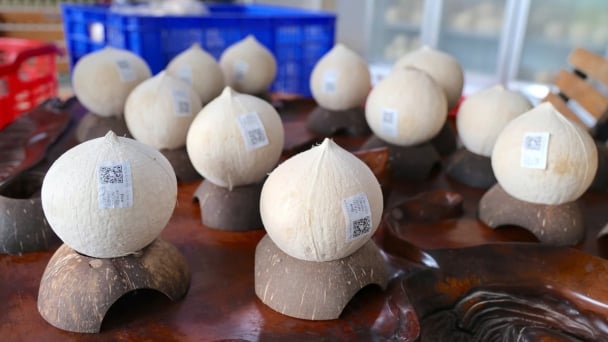
(VAN) Viet Coconut Cooperative 78 has built the brand 'Tay Ninh peeled coconut', pioneering the use of QR codes on each fruit and opening the way for local coconuts to reach larger markets.
/2025/08/28/3715-2-002414_57.jpg)
(VAN) The success of Moc Chau farmers has been significantly supported by international organizations, which have introduced techniques and models for farmers to apply to their production.